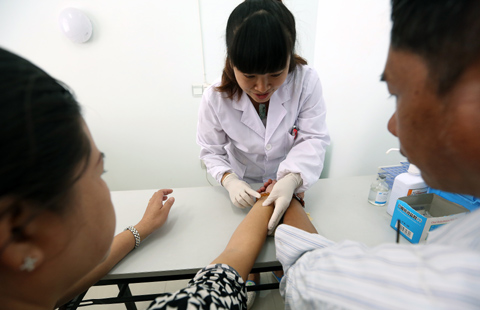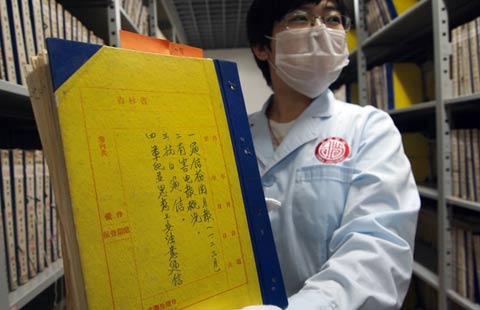Second-child policy has little effect on Zhejiang, Hubei
By Wang Qingyun (chinadaily.com.cn) Updated: 2014-07-10 19:25The second-child policy has had little effect on the population growth rate in Zhejiang and Hubei provinces, health officials said in a news briefing in Beijing on Thursday.
On Jan 17, Zhejiang province introduced the second-child policy. In order to be eligible to have a second child, one of the parents must be an only child.
The province estimated that about 80,000 more babies will be born this year in the province. However, Wang Guojing, deputy director of the health and family planning commission of Zhejiang province, said on Thursday that the province has lowered that estimate to 20,000.
Hubei province is seeing a similar trend. The province began implementing the policy on March 27.
As of May 31, there were 629,400 couples in which one side was an only child, but only 10,958 people had applied for permission to give birth to a second child, said Yang Yunyan, director of the health and family planning commission of the province.
Some of the causes for the lower number include a change of people's mindset and couples getting too old to have a second child, according to Wang.
However, the loosened family planning policy will not be expanded to all couples in the country, as a recent survey showed that almost 90 million families with only one child want to have a second child, said Yang Wenzhuang, an official of the National Health and Family Planning Commission.
Yang Wenzhuang said expanding the loosened policy to all couples would impose a great burden on the country.
- Couple appeals fine for second child
- New generation of families with second child tackling unique parenting challenges
- Pingtan issues first permit for second child
- Most Shenzhen hopeful second-child mothers in 30s
- Ligation not forced after having second child
- Fujian allows 98-day maternity leave for second child birth
- Plan to build border city in Xinjiang Ok'd
- Fun diving in Guangdong
- School bus accident kills 11 in C China
- Web retailers urged to heed consumers' refund rights
- Military boosts corruption fight
- Changes sought in smoking law
- Second-child policy having limited effect
- Graduation photos capture younger, older self
- Courts in China to look out for lawyers
- College addresses need for experts in anti-terrorism







